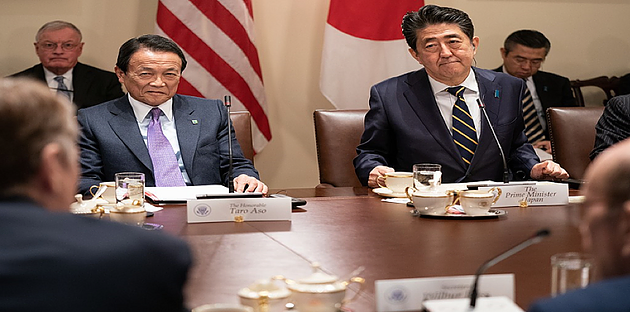Does Japan Need Their Article 9 Changed?
- Aug 23, 2019
- 3 min read

In 1947, during US occupation, Japan’s constitution was changed and Article 9 was added to ‘forever renounce war… and the threat or use of force as means of settling international disputes. Land, sea and air forces, as well as other war potential will never be maintained’.
One of Japanese Prime Minister Shinzo Abe’s most hotly-contested policy goals is his desire to change Japan’s constitution – specifically Article 9 – to allow the country to legally possess a military.
Abe has once again been re-elected, and his current term will see him become the longest-serving Japanese Prime Minister ever, come mid-November.
Abe tried again to curry votes to allow Japan to hold a referendum to change their constitution, but fell four seats short of securing two-thirds majority in the upper house to support this change.
To properly understand if Article 9 should be changed, a brief history of Article 9 will be explored.
During post-World War II US occupation, the US intended for Japan to be a peaceful country, as they were belligerent and violent during the war. As a result, the US forced Japan to include Article 9 in their newly-made constitution.
This was during a time when the world sought actualised peace, and the US didn’t want Japan as a threat to them ever again, so they forced this change. Conversely, only a few years later the US wanted Japan to take up arms for them at the onset of the Cold War, but Japan declined.
In 1954, Japan created its Self-Defense Forces (SDF), as the government argued that self-defence is inherent to state survival and does not violate Article 9. The government believed that the minimum armed organisation required for self-defence did not amount to ‘war potential’.
Since then, the political landscape has changed dramatically. There have been no world wars, and the strategic policy of Asian countries is forever shifting.
China has emerged as a new world power, and it flexes its muscles in disputes over sovereignty, and any other domains. Japan is wary of North Korea and other Asian states are building their arms to balance Chinese power.
As a result of a forever changing dynamic, Japan has reinterpreted its Article 9, to state that it can go on peacekeeping missions in warring areas, as well as use force to defend Japan itself, and its allies.
To achieve this, Abe’s SDF boasts one of the largest military budgets in the world, and it is in fact a potent military force.
Therein lies the grey area. Since World War II, Japan has not used its military as a means to invade, or settle any international disputes. Yet, while it may not be called ‘the Japanese military’, the SDF achieves the same purpose.
For these reasons, Abe seeks to clarify and amend what many scholars argue is the unconstitutional part of the SDF – the fact that they are an armed force.
Anything other than the idea of only self-defence will not pass in a Japanese referendum, and Abe claims this was always his goal; he only wants to legitimise the SDF.
Japan’s stance on ‘peace’, is a very Japan-centric way of thinking about international affairs. The majority of the Japanese people don’t support participation in conflicts, unless for purely self-defence.
Yet, despite Japan’s talks of peace, they are working to balance Chinese power in the Asia-Pacific region. Sino-Japanese relations regarding the contested Senkaku/Diaoyu islands have seen both China and Japan state that they will protect what they believe to be their national sovereign territory, if the other decides to stake a tangible claim.
Abe has stated that growing threats from North Korea and China are the reasons for an increase in military spending. This is a normal response to the shifting landscape surrounding Japan, and it makes sense that Japan should legitimately be able to use force to protect themselves, without worrying about it being unconstitutional.
The world has changed dramatically since World War II, and Japan’s constitution should evolve to reflect this change.
The G20 was recently held in Japan, and the official website states that: ‘the Japanese government is determined to carry out strong leadership in advancing discussions resolving the myriad issues facing the international community’.
This quote encapsulates Abe’s ideology that Japan is still a tier-one country in international politics and that they wish to provide leadership and strong foreign policy in a way that suits their philosophy of ‘peace’.
During Abe’s time as Prime Minister, he has slowly won over the Japanese population to at least discuss a potential revision of the constitution, and Abe wants to achieve this revision before the 2020 Tokyo Olympic Games.
Achieving a revision will revolutionise Japan’s security policy and bring it more in line with the current political climate, while still staying true to Japan’s deeply ingrained beliefs of peace.
George Sagris is a journalist and Honours graduate in Japanese-Chinese politics, based in Adelaide.



Comments